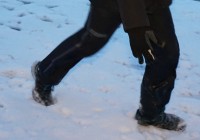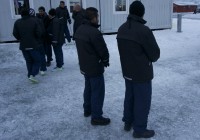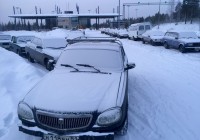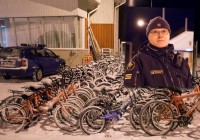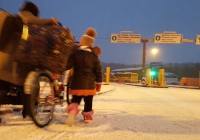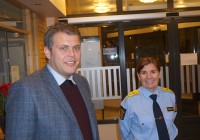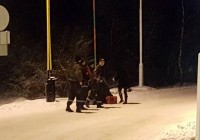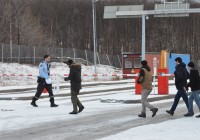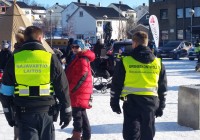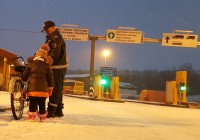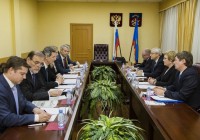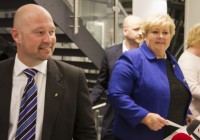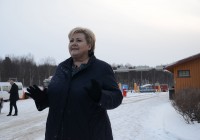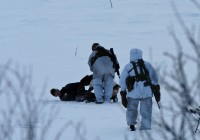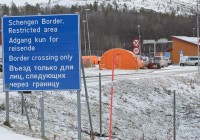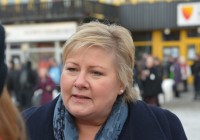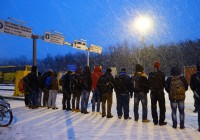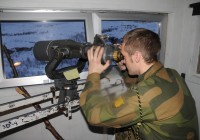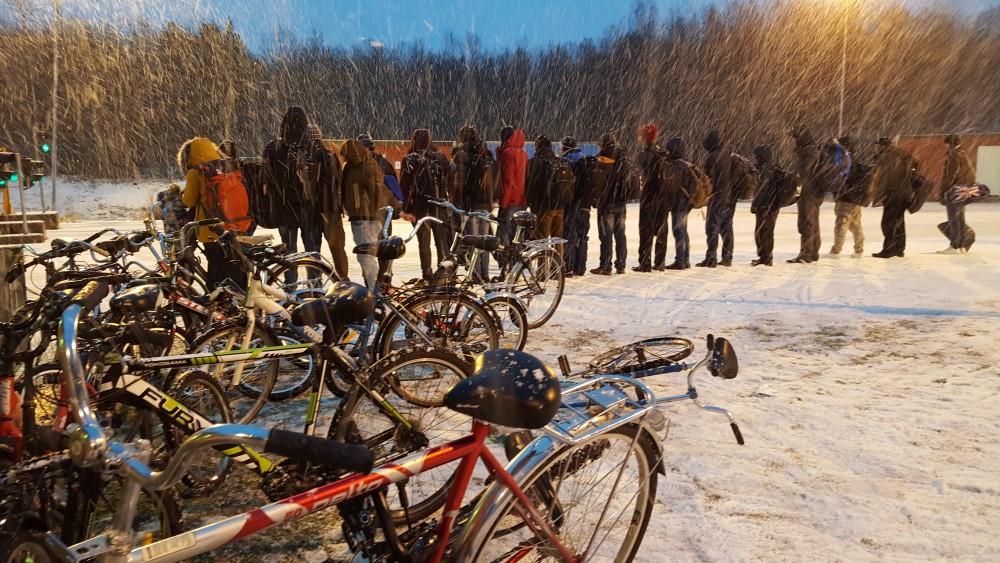
Russia will accept return of migrants in busses
ADVERTISEMENT
Norway has returned hundreds of migrants back to northern Russia in freezing cold weather on bicycles. Thousands more are waiting to go the same way. This week, temperatures at Storskog checkpoint dropped below -30 degree Celsius.
Norway’s National Police Immigration Service informs that by end of December, 371 persons were returned to Russia via Storskog checkpoint. Since December, no migrants are returned on the Arctic Route. But, several thousand of those that last autumn came to Norway via the Arctic Route risk being returned the same way.
“We do not comment on future transportations out of the country, but on a general basis the police do consider the use of bus more suitable than bicycles,” says Communication Officer Daniel Drageset to the Independent Barents Observer.
“When this [use of busses] can start up depends on accept by Russian authorities.”
The Independent Barents Observer is told by several sources within the law enforcement agencies in Norway that Russia now agrees to receive migrants on return in busses instead of on two wheels. The National Police Immigration Service is already in discussion with bus companies for practical arrangements.
Norway’s Border Commissioner, Roger Jakobsen, confirms that the police have the opportunity to use bus in connection with back-transportation by their personnel with valid entry to Russia.
“It is for the police to answer on the details,” Jakobsen says.
ADVERTISEMENT
Nobody is allowed to walk over the borderline between Russia and Norway, a regulation Russian border authorities insist on keeping. Last autumn, refugees began to arrive on bicycles after Norway started to fine drivers giving lift to people without legal entry papers to Schengen Europe.
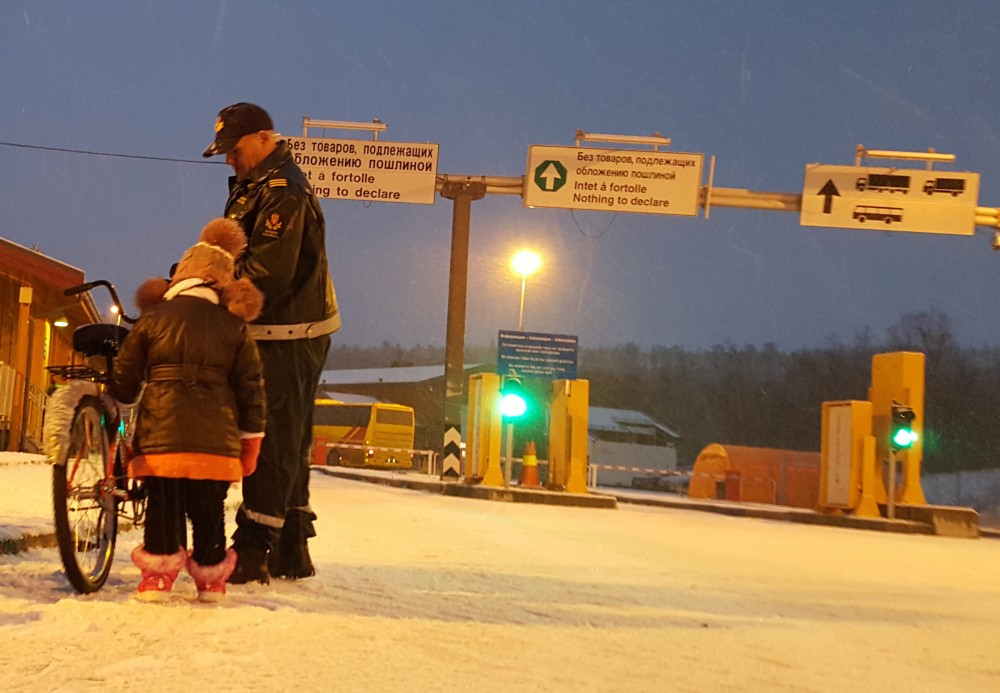
The plan is to bus migrants back to the nearest town on the Russian side of the border, by that avoiding what many believe is a inhuman treatment of migrants by forcing them to bike out of Norway in extreme cold.
In Oslo, several politicians from opposition parties in the Parliament Wednesday strongly criticized the Government for returning migrants back to Russia on bicycles.
Prime Minister Erna Solberg replied by blaming the Russians for not accepting bus transport of migrants across the border.
“We have offered them bus to the nearest town, but the Russians say they [migrants] will have to come back the same way as they left,” Erna Solberg said in the Parliament.
In Kirkenes, Norway’s border town that last autumn were surprised by the inflow of thousands of refugees coming via Russia, the Government’s return of the same people back to Russia in the frost has triggered protests.
On Thursday, a member of the local ad-hoc group “Refugees welcome to Finnmark” is on the group’s Facebook profile advocating for people to come to Storskog to sit down and protest against the way people are returned to Russia.
Norway’s newly appointed Minister of Immigration and Integration, Sylvi Listhaug, said on Tuesday that every migrant who came to Norway at Storskog will be sent back to Russia.
Norwegian Human Rights Group are strongly criticizing Norway for not even considering the merits of those applying for asylum.
After this article first was published, the Cheif of Police in Finnmark, Ellen Katrine Hætta, confirms the news.
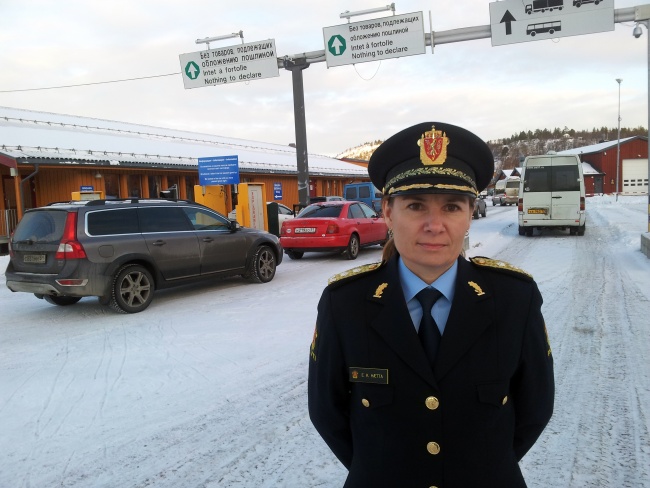
“We are satisfied that the contact with Russian border authorities has contributed so that border-crossing at Storskog with return from Norway to Russia can take place in an safe and efficient way,” says Ellen Katrine Hætta.
“They will be returned in busses and taken to a town outside the border zone,” says Tor Espen Haga with the National Police Immigration Service.
Nearest town is Nikel, some 40 kilometres from the border to Norway.
ADVERTISEMENT
The Barents Observer Newsletter
After confirming you're a real person, you can write your email below and we include you to the subscription list.



